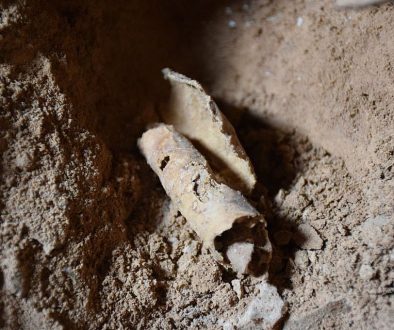The president of Answers in Genesis says the recent discovery of a dinosaur bone in Montana supports the biblical creationist theory of a young Earth.
According to an article published in last month’s Science magazine, in 2003 scientists found a Tyrannosaurus Rex thigh bone during an archaeological dig.
The research team had to break the bone in pieces in order to fit it into a helicopter, and when they did so, they discovered the fossil contained well-preserved soft tissues, including blood vessels.
Ken Ham, president of the creationist group Answers in Genesis (AiG), says this important find supports the biblical view of the Earth’s timeline. "The reason this is such startling news is because you just wouldn’t expect soft tissue and cells like this in a bone supposedly 70 million years old," he says.
The general consensus among scientists prior to the find was that such soft tissue could not survive for tens of millions of years. Now, the dinosaur remains have many evolutionists scrambling to accommodate their evolutionist ideas about origins.
But what AiG scientists would say about the find, Ham observes, "is that it’s totally consistent with the fact that these bones aren’t that old and probably date back to the time of the flood just a few thousand years ago." However, he doubts evolutionists will give consideration to the possibility that the T-Rex bones are only thousands rather than millions of years old.
"Nothing has been found, nothing in observational science, that contradicts what the Bible says," the AIG spokesman contends, "but over and over, it does contradict the ideas of evolutionists."
Still, because evolutionists’ beliefs about the past are so entrenched, he predicts they will just look for ways to explain away the contradictory evidence.
"Instead of questioning their beliefs they just come up with secondary and tertiary explanations," Ham says. "’Well, given enough time …’ or ‘Well, we think there is a process somewhere’ or ‘Well, even though we don’t know why’ – In other words they’ll do anything but question their beliefs."
Ham is convinced proponents of the theory of evolution will not allow the Montana find to change their minds. Even though, he contends, the recent discovery supports the young Earth theory of origins, he believes evolutionists will say anything rather than admit that the biblical account of creation is true.





